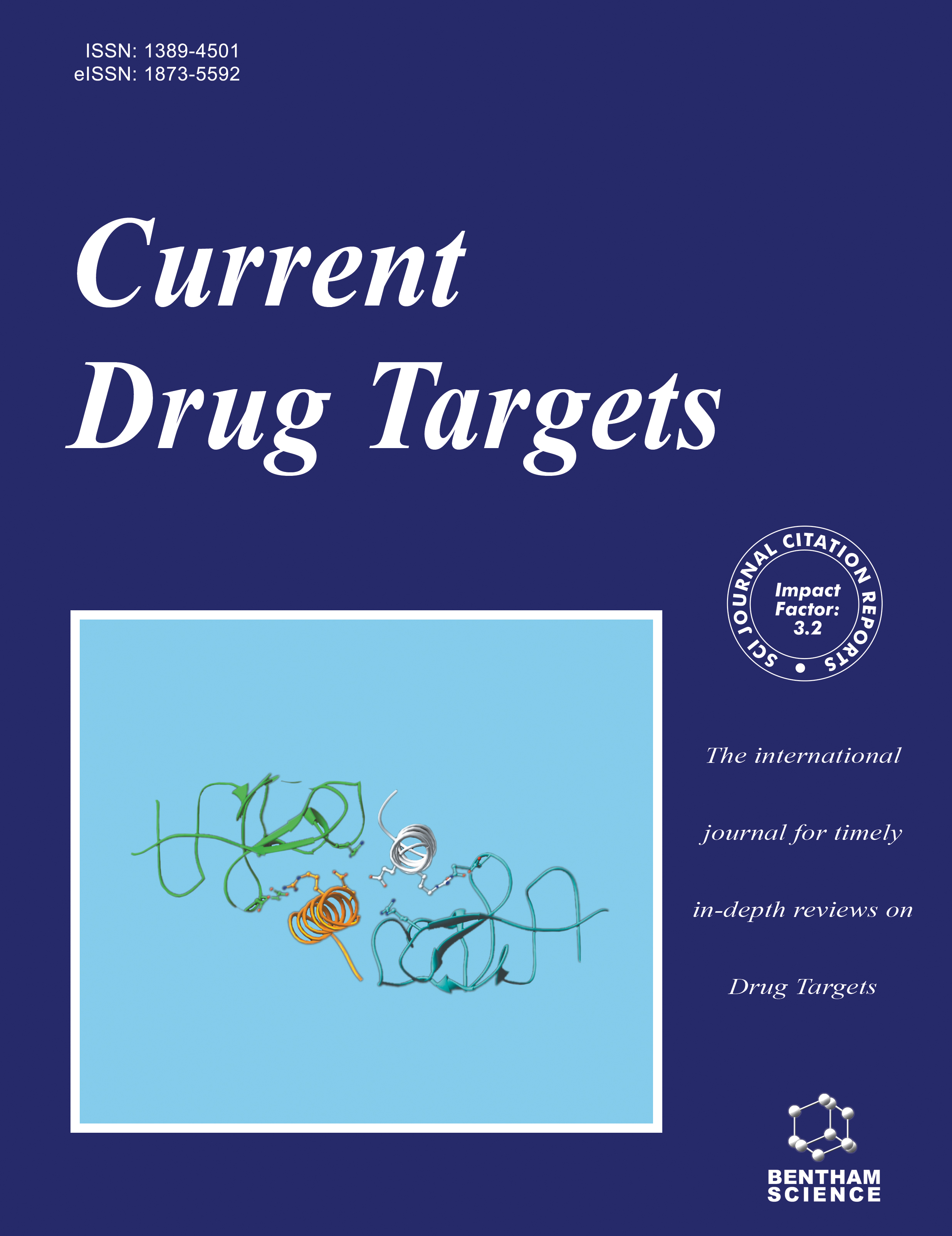-
oa Editorial [Hot topic: Putting the Brakes on Breast Cancer: Therapeutic Opportunities to Bring Cancer Stem Cells and the Tumor Microenvironment to a Screeching Halt (Guest Editor: Tracy Vargo-Gogola)]
- Source: Current Drug Targets, Volume 11, Issue 9, Sep 2010, p. 1041 - 1042
-
- 01 Sep 2010
Abstract
Despite a recent decline in incidence, breast cancer remains as one of the most frequently diagnosed cancers and the second leading cause of cancer related deaths in American women [1]. There are a number of challenges that impact our ability to effectively treat this disease. First, breast cancer is a heterogeneous collection of diseases that demonstrate diverse histopathologies [2], genomic alterations [3], gene expression patterns [4, 5], clinical features, and therapeutic outcomes [6]. A second major challenge is the lack of treatment options for breast cancers that are inherently resistant or acquire resistance to multiple therapies including cytotoxic, endocrine, and targeted therapies [7-11]. Finally, there is a paucity of treatments that are effective against metastatic breast cancer [12], and thus the majority of patients with metastases will eventually succumb to the disease. Despite these complex issues, the development of targeted therapies such as trastuzumab to treat Her2+ breast cancers [13, 14] and tamoxifen and aromatase inhibitors to treat hormone receptor-positive breast cancers [15] have had a major impact on disease outcome for a significant number of patients. These success stories indicate that additional targeted therapies used in a personalized fashion will allow us to more effectively treat this heterogeneous disease to prevent resistance, recurrence, and ultimately, death due to metastasis. In this special issue ten articles highlight emerging targets that are highly promising for the development of targeted therapies for breast cancer. One recurring theme, targeting breast cancer stem/tumor initiating cells, reflects the explosion of literature in this field during the last 5-10 years. For example, Prosperi and Goss, Pal et al., Greene et al., and Visbal and Lewis, highlight the literature describing the promise and pitfalls of targeting Wnt signaling, miRNAs, Hedgehog signaling, and the Notch pathway to eradicate tumor initiating cells to prevent disease recurrence and metastasis. Tumor initiating cells, and cancer cells in general, also display altered metabolism, and Davison and Schafer discuss the literature focused on targeting metabolic pathways as potential therapeutic targets for breast cancer. In addition to targeting tumor initiating cells, there are several other promising avenues for the development of targeted therapies for breast cancer. One area that has gained a great deal of interest during the last decade is the role of the microenvironment during the growth and progression of breast cancer. Goldberg and Schwertfeger discuss the role of the immune system and specific inflammatory mediators as potential targets for breast cancer. Baxley and Serra describe the TGFβ signaling network that plays an important role in mediating cross-talk between breast tumor cells and the microenvironment. This network is also a critical mediator of epithelial to mesenchymal transition, which facilitates breast cancer metastasis. Other key targets that facilitate tumor-microenvironment interactions and metastasis are macrophage stimulating protein (MSP) and its receptor Ron discussed by Kretschmann et al. McHenry and I discuss the Rho GTPase signaling network, which functions to integrate multiple signals from the extracellular environment, as a potential target for treatment of breast cancer. This signaling network, like many of the others highlighted in this issue, has pleiotropic functions. Thus, therapeutics targeting this pathway may have utility in multiple stages and subtypes of breast cancer. Finally, Sachdev describes a number of clinical trials investigating the efficacy of drugs targeting the IGF signaling network. Of all the specific pathways discussed in this issue, the development and testing of drugs targeting this network is most advanced. Over the last decade we have learned a tremendous amount about the cellular and molecular basis of this complex disease. As we continue to unravel the specific pathways that control the growth and progression of tumor cells in specific types of breast cancer, new targets will be identified. I hope you enjoy this special issue showcasing several highly promising targets for breast cancer treatment that are on the horizon.


